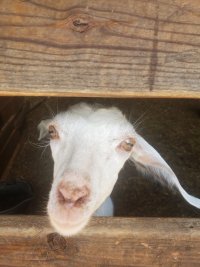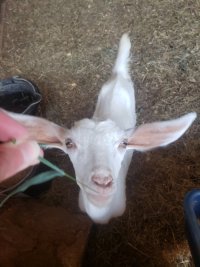- Thread starter
- #11
nstone630
True BYH Addict
Vet came out today. Said classic presentation for sore mouth. Says since there is no secondary bacterial infection is why it doesn't look near as bad as all pictures I see on line. So I need to keep it clean, carefully as not to get it myself. And it will run its course in 3-4 wks.I'm glad I could be of help. Let us know how things turn out for her!




